This article was originally published by The New York Review of Books.
In 1921, the year before he founded the Union of Soviet Socialist Republics, Vladimir Lenin challenged his fellow Bolsheviks with a rhetorical question: “Who overtakes whom?” Joseph Stalin preferred a starker version: “Who-whom?” Both saw politics as a deadly competition in which the winner takes all—war by other means.
So does Vladimir Putin. He looks back at the late 1980s and 1990s with bitterness. He sees the tumult of that period not just as the collapse of the Soviet Union and a victory for its enemies in the West but a devastating blow to something far more precious, venerable, and enduring: the Russian state. Under his regime another familiar question looms: “Who is to blame?”
In Putin’s eyes, the heaviest responsibility falls on the last leader of the Soviet Union, Mikhail Gorbachev, who was the prime mover of what Putin has called “the greatest geopolitical catastrophe” of the twentieth century. Yet instead of denouncing or punishing Gorbachev, Putin has treated him with thinly disguised condescension. For years Gorbachev traveled abroad to accept honors and honorariums, knowing that, back home, masses of his fellow citizens scorned him. In 1996, he ran in the presidential election and got half a percent of the vote.
Now eighty-six and in shaky health, Gorbachev lives quietly in a dacha outside Moscow—but not silently. Over the course of a decade, he gave eight long interviews to William Taubman, a historian at Amherst College, and his wife Jane, who taught Russian there. The result of Taubman’s research is a masterpiece of narrative scholarship. It is also the first comprehensive biography of this world-historical figure. Other chronicles of Gorbachev’s life and verdicts on his record will follow, but they will be without the trove of personal insights that Taubman has gleaned from his access to Gorbachev himself, his advisers, and other participants in those dramatic years.
Taubman notes that his subject’s birth in a peasant village in the North Caucasus coincided, both in time and place, with the rise of Stalinism—and that his family both resisted that phenomenon and suffered from it. Gorbachev’s grandmothers and mother insisted that he be secretly baptized when he was born in 1931, in defiance of the draconian suppression of religion that had accompanied communization. He would never know two of his uncles and one aunt who perished in the famine of those years, and both of his grandfathers were sent to the Gulag during Stalin’s Great Terror.
The book also contains a love story. Gorbachev met Raisa Titarenko at Moscow State University. Their romance was enhanced and sustained by her intelligence, strong will, firm convictions, and dedication to her ambitious and extroverted husband. She sacrificed what could have been a successful career as a sociologist in order to help her husband and protect him from his enemies, but also from his tendency to let his loquaciousness, charm, and self-confidence trip him up. No one influenced him more.
Taubman’s previous subject was the life and career of Nikita Khrushchev, a crude, bumptious, erratic, and belligerent character who nonetheless was the only leader of the Soviet Union before Gorbachev to qualify as a reformer.1 Khrushchev spent much of his life as one of Stalin’s henchmen, with blood on his hands. But once the dictator had died and Khrushchev had outmaneuvered his peers in the scramble for succession, he did his best to “de-Stalinize” the Soviet Union, freeing prisoners from the Gulag and relaxing repression and censorship.
Khrushchev paid a heavy price for his experiments in the liberalization of society and culture. In 1964, the Presidium (later renamed the Politburo) summoned him back to Moscow from a Black Sea vacation, fired him, and consigned him to house arrest as a “special pensioner” for the rest of his life.
Gorbachev’s punishment has been watching the renunciation of much of his own legacy, and the restoration of an authoritarian, predatory regime ruled by a former middle-rank KGB officer whose purposes, methods, and policies are antithetical to those that made Gorbachev a transformative global figure.
Gorbachev, too, had crucial connections with the KGB at the highest level. He probably would never have ascended to power without the patronage of Yuri Andropov, the head of Soviet intelligence for fifteen years before he became party leader in 1982. Taubman tells us that Andropov met Gorbachev in 1968, soon after he took over the KGB. One of the youngest provincial party chiefs in the USSR, Gorbachev combined a reputation for loyalty with a fertile mind, pragmatism, and a talent for innovation—qualities that Andropov felt the country sorely needed.
Andropov’s position gave him access to data on the deterioration of Soviet society. The economy was anemic, the governing structures were rigid and inefficient, and laws were ignored or unjust. Factory towns polluted the air and water as they churned out armaments while ordinary citizens had to stand in long lines for paltry supplies of food and shoddy goods. Collectivized agriculture made the lives of farmers and their customers miserable. Public health services were abysmal, and the population, especially the Slavic majority, suffered from pervasive alcoholism, low birthrates, and decreasing life expectancy. Andropov faulted the complacent and stultifying policies of Leonid Brezhnev, the ponderous, beetle-browed apparatchik who replaced Khrushchev in 1964.
Andropov succeeded Brezhnev in 1982. His kidneys were failing and within a few months he was working mostly from his dacha, tethered to a dialysis machine. From a hospital bed in 1983 he urged his underlings to choose Gorbachev as his successor. But when Andropov died the following February, they had already decided that Konstantin Chernenko, a seventy-two-year-old party hack, would be a safer pick, although he was afflicted with emphysema, pleurisy, pneumonia, and heart disease. They were organizing Chernenko’s funeral just thirteen months later.
Unlike the succession after Andropov’s death, the outcome this time had not been decided beforehand. Gorbachev, who had just celebrated his fifty-fourth birthday, was the front-runner. He had risen to the number-two position in the Politburo, which meant that he would chair the meeting on succession. There were half a dozen other aspirants, ranging in age from sixty-two to eighty, all orthodox Communists to the bone and all experienced in protecting their personal turf and the status quo. Gorbachev let all the members have their say while he steered them toward selecting him by acclamation to head the commission that would supervise Chernenko’s interment in the Kremlin Wall Necropolis. That ceremonial duty was, by tradition, a signal that he would be the next leader. The Central Committee rubber-stamped the decision the next day.2
Until this triumphal moment in his career, Gorbachev was wary about how Raisa would react to his appointment and therefore had not told her his plans. Taubman, in one of their interviews, probed why he kept his closest confidante in the dark. Was it because she would be disappointed if he lost out, or because she feared the troubles that the job would bring? The latter, Gorbachev replied laconically. His critics accused him then—and still do now—of hubris and lust for power. Taubman does not agree: “True, he wanted the top spot and had been maneuvering to get it. But he didn’t want power for its own sake; if power had been his goal, he often insisted in later years, he would have presided happily ever after over the status quo, as Brezhnev had.”
Taubman opens his chapter on Gorbachev’s debut in office with another question that resonates with Russian history, “What Is to Be Done?,” the title of a 1901 pamphlet by Lenin (quoting the nineteenth-century revolutionary Nikolai Chernyshevsky). The pamphlet called for a socialist revolution that Gorbachev, like many of his fellow Leninists, felt had lost its way. Gorbachev’s first public events as general secretary were refreshingly informal and engaging. He radiated charisma and confidence, creating expectations that he knew what had to be done to shape the next stage of Soviet history.
However, Gorbachev had no cogent plans to tackle the chronic ills of the economy. Even if he had, it would have been threatening to others in the Politburo. One-man rule had died with Stalin and been supplanted by a collective leadership—a super-board of directors who kept an eye on the chair, especially one so young, untested, and cocky.
Gorbachev never got over the fear that he might suffer some version of Khrushchev’s fate. Partly for that reason, he at first shied away from radical economic reforms. As Taubman puts it, “Although Gorbachev’s style was unprecedented, the substance of his policies during his first year in office was not.” But before long he was transforming the Soviet Union’s foreign policy and reconstructing its political ethos, practices, and institutions.
By the end of 1986, he concluded that the only way to maintain the Communist Party’s authority over Soviet society was to open the system to the participation of the citizenry. He had yet to fully conceive of this goal, not to mention implement it. But he knew that it would involve replacing conservatives with reformers. His ability to do this came with the office of the general secretary. He had already nudged Andrei Gromyko out of the foreign ministry into the titular position of head of state, so he could apply his “new thinking” to Russia’s place in the world. Old thinking, as he saw it, was based on the conviction that the Western imperialists were bent on invading the USSR. Taubman notes that in Gorbachev’s first months, he repeatedly floated the public admonition, “We must live and let live,” a tacit repudiation of the Leninist-Stalinist motto of “who-whom?”
Several months before Gorbachev became general secretary, he had visited Britain and impressed Margaret Thatcher. (“We can do business together,” she announced.) Ronald Reagan, who had famously dubbed the USSR “the evil empire,” was initially skeptical, but a summit in Geneva in the fall of 1985 broke the ice. While there was no diplomatic progress, both leaders called the meeting a “breakthrough,” largely, Taubman shows, because of extraordinary personal chemistry. They compared their backgrounds and found affinity: both had begun life in “small farming communities,” Reagan told Gorbachev at Geneva, yet here they were “with the fate of the world in [our] hands.” In Reagan’s eyes, the Soviet bloc was still an empire, but less evil than it had been before.
Neither Gorbachev nor Reagan realized that the empire itself was on the verge of implosion. From the day he became general secretary, Gorbachev paid little attention to the Soviet vassal states of the Warsaw Pact. He believed that they would follow his own reforms. After all, since the early 1950s, East Germany, Hungary, and Czechoslovakia had made attempts to liberalize, only to be invaded by Soviet tanks.
In 1989, Gorbachev presided over a Warsaw Pact summit that guaranteed “equality, independence and the right of each country to arrive at its own political position, strategy and tactics without interference from an outside party.” He thought that his renunciation of violence as the foundation of governance would be the salvation of the Soviet Union and its “socialist” brethren in Eastern Europe. This, for Taubman, was Gorbachev’s “sharpest break of all” from his predecessors. But without the protection of Moscow, the party chiefs in Eastern Europe were at the mercy of their citizens, and Moscow’s example of glasnost (openness or free speech), perestroika (restructuring), and new thinking emboldened independence-minded reformers in all the Soviet captive states.
A similar dynamic was taking hold within the USSR itself, with dangerous consequences for Gorbachev. Most of the Central European countries had experienced parliamentary democracy before their occupation by the Third Reich and then decades of Soviet domination. Their reformers could invoke that past. Russia’s political culture, in contrast, was disadvantaged by its roots in centuries of autocracy. Gorbachev, in his anomalous if not schizophrenic dual role as head of the Communist Party and reformer-in-chief, hoped to democratize the party, not to expunge it. His plan in 1989, as Taubman explains, was to shift power from the party hierarchy into the hands of citizens by using free elections to fill local, district, and national councils, or soviets (the Bolshevik term that found its way into the name of the country and its system of governance).
The opening up of politics to civil society is what his liberal supporters had long awaited. It also marked the incipient return of genuine elections in the Soviet Union, not seen since the brief episode of constitutional reform, the establishment of the state duma (parliament), and multiparty elections that occurred after the Russian Revolution of 1905, only to be snuffed out by the Bolsheviks. As Taubman puts it, the election campaign for a new USSR Congress of People’s Deputies “constituted the new, more democratic ‘game’ that Gorbachev was still learning to play.” It was by no means clear that he would win. Just as Gorbachev expected, hard-liners abominated and resisted the dilution of the party’s power. What unsettled his plan was that liberals—including the widely admired dissident Andrei Sakharov, whom Gorbachev had freed from internal exile—felt he was moving too slowly, while regional leaders were tightening their hold on their own fiefdoms.
The most important of these regional leaders was Boris Yeltsin, a former Gorbachev ally. Gorbachev had plucked Yeltsin out of the provincial capital Sverdlovsk in the Urals, where he had a reputation as an energetic innovator, and put him in charge of the Moscow party. Yeltsin brought more zeal to the job than Gorbachev bargained for. The personal acrimony and political feuding that ensued between them, as dramatically described by Taubman, made for a spectacle on the level of a Shakespearean tragedy or a Mussorgsky opera.
Yeltsin fumed over Gorbachev’s reluctance to make him a full member of the Politburo. When Yeltsin dared criticize Gorbachev at a crucial Central Committee plenum in October 1987, the session turned into a five-hour rhetorical pummeling of Yeltsin. Outside the hall, this move backfired. To many Russians fed up with the party, Gorbachev came off looking like a bully, increasing his victim’s popularity. As Taubman notes, Gorbachev inadvertently created his own nemesis.
These two antagonists shared democratic values and goals, but their approaches differed sharply. Gorbachev was determined to maintain a reformed USSR under his own leadership. To do so he had to straddle a widening fissure between a dispirited, schismatic, and widely reviled Communist Party and a burgeoning anti-establishment, democratic movement. Yeltsin, by contrast, worked feverishly to consolidate the Russian Republic—one among fifteen republics in the USSR—as a base from which he could harness the union’s centrifugal forces to his own political advantage. Yeltsin handily won an election for the presidency of the Russian Republic in 1991, having quit the Communist Party the year before, calling into question the viability of the Soviet state.
Russia’s current propagandists have rewritten history to support the myth that Western powers, particularly the United States, connived in the breakup of the USSR. There was no such goal in Washington. However, President George H.W. Bush, in his early months in office, called for a hiatus in the American embrace with Moscow so that he could take counsel from his secretary of defense Dick Cheney, national security adviser Brent Scowcroft, and Scowcroft’s deputy Robert Gates. They felt that Reagan had gone too far in endorsing perestroika and other reforms. Taubman believes that the so-called “pause” was a serious error. For the first time since the Bolshevik Revolution, the Soviet Union had a leader who no longer saw the United States as an enemy but as a potential partner.
Gorbachev had good reason to resent Bush’s lukewarm support in early 1989, since it weakened him politically within the USSR. And when Gorbachev pleaded in 1990 and 1991 for extensive economic aid on the scale of the Marshall Plan, Washington refused, citing economic troubles of its own. However, despite Bush’s initial hesitation, he echoed Reagan’s praise of Gorbachev and his reforms, asserting that they were in the interest of the United States and world peace.
President Bush also tried to tamp down the pressure for independence within the Soviet republics, particularly in Ukraine, where citizens were about to vote for secession in a referendum. In July 1991, Bush made a trip to Moscow and Kiev with those two purposes in mind. He failed in both capitals. Gorbachev was wobbly and Yeltsin confident. In Ukraine, both the leaders and the populace rejected Bush’s plea to give Gorbachev more time to liberalize the USSR.
Neither the American nor the Soviet president realized that a mortal threat to the USSR had already emerged. Since the spring, Vladimir Kryuchko, the chief of the KGB, had been fomenting a plot to force Gorbachev to declare a state of emergency and relinquish much of his power to a junta of hard-liners. In August 1991, the conspirators placed Gorbachev and his family under house arrest at their vacation home on the Black Sea.
The coup was a fiasco. The conspirators were incompetent and in at least one case drunk; another committed suicide. But it was nonetheless a serious setback for Gorbachev, and one for which he was also at fault. Taubman makes clear that Gorbachev ignored warnings, including from President Bush, that a coup was coming. One of Gorbachev’s closest and most loyal aides lamented his boss’s overconfidence. Gorbachev “couldn’t believe” that the conspirators would betray him. Why? Because he thought they “were incapable of doing anything without their leader.”
The citizens of Moscow saved Gorbachev, pouring into the streets in peaceful demonstrations. However, their goal was less to return him to power than to defend their newborn democracy, which Gorbachev had made possible and Yeltsin now championed. Yeltsin climbed onto a tank, rallied the crowds, and showed the world that he was the man of the future. For Gorbachev, the coup was a personal as well as a political tragedy. Raisa had a stroke amid the stress of humiliation and danger of their house arrest in Crimea. She never fully recovered.
While the plotters went to jail and Gorbachev returned to his office in the Kremlin, he was now a spent force. He resigned from the post of general secretary in hopes that he, too, could distance himself from the party, allowing him to remain the president of the Soviet Union. It was too late. Yeltsin and leaders of other republics were negotiating a treaty that would create the Commonwealth of Independent States. The USSR dissolved on December 26, and by New Year’s Day 1992, the hammer-and-sickle flag that had flown over the Kremlin for sixty-eight years had been replaced by the tricolor of Russia’s tsarist past.
The transition was much less turbulent than Gorbachev feared it would be. As Taubman notes, he used a private channel to ask for Bush’s help in protecting him from reprisals or indignities. (The historian Michael Beschloss and I were the intermediaries.) Bush’s secretary of state, James Baker, complied, admonishing Yeltsin to handle his victory “in a dignified way—as in the West.”3
In 2006, an interviewer asked Gorbachev if he had contemplated the use of lethal force as a means of keeping the USSR intact. “Of course not,” Gorbachev insisted. “It never came into my head, because if it had, I wouldn’t have been Gorbachev.”3 This grandiloquent reversion to the third person suggests that the lion in winter still regarded himself as a heroic figure. It would probably have elicited a remonstration from Raisa. But she had died of leukemia seven years before, in 1999, in a hospital in Germany. “Of course, I’m guilty,” he said publicly while in mourning. “I’m the one who did her in. Politics captivated me. And she took it all to heart. If only our life had been more modest, she would be alive today.”
Yeltsin’s triumph and the euphoria of his supporters were short-lived. Missteps, failures, and humiliations awaited him early in his tempestuous eight-year tenure, just as they had cast a shadow over the accomplishments of his predecessor. But like Gorbachev, Yeltsin clung to his revulsion for the brutishness of the Communist past. He, too, was loath to use force or risk instability as the world’s largest territorial state dismantled itself. One of his most important decisions was to maintain the borders dividing the republics of the USSR as the new international borders for the post-Soviet independent states. This decision and its enforcement spared the former USSR the kind of revanchist, religious, and ethnic carnage that accompanied the disintegration of Yugoslavia.
Russians have often compared the chaotic Yeltsin presidency to the so-called Time of Troubles, an interregnum between tsarist dynasties at the end of the sixteenth and the early seventeenth centuries. Still, Yeltsin tried as hard as Gorbachev to establish participatory democracy and partnership with the West. Despite the antipathy between them, both wanted their children to live in a “normal, modern country”—a deliberately understated phrase for an outcome that reformers knew would require a long, difficult, and often dangerous process to achieve.
Throughout Russian history, progress has often awakened the forces of regression. On the last day of the twentieth century, Yeltsin, suffering from heart disease and politically exhausted, resigned without warning from the presidency. In the course of his leadership, he had six prime ministers, one who was appointed twice and four of whom he fired.4 Putin, as the last prime minister before Yeltsin’s resignation, got the ultimate promotion. A major factor in his ascent was his scorched-earth strategy in subduing Chechen secessionists. Bringing the Caucasus homeland back under Moscow’s rule boosted Putin’s reputation for being a tough, vigorous leader. Over the last seventeen years, especially since the end of his second term as president in 2008, he has thrown Russia’s evolution into reverse, dismantling the incipient democracy that both Gorbachev and Yeltsin had made it their life’s mission to establish.
What if the Politburo had not decided thirty-two years ago to bypass the old guard and take a chance on the youthful, innovative Gorbachev? The USSR, the Communist Party of the Soviet Union, the Warsaw Pact, the Iron Curtain, the Berlin Wall, and the cold war might have lasted well into the twenty-first century. In that alternative scenario, Lieutenant-Colonel Putin, an undercover agent in the sleepy backwater of East Germany during five of Gorbachev’s years in power, might have spent the rest of his professional life serving the Soviet state in obscurity.
Instead, after burning the files in the KGB rezidentura in Dresden, Putin returned to his native Leningrad (soon to be St. Petersburg) and joined the orbit of the mayor, Anatoly Sobchak, formerly a leading liberal legislator in the new, genuinely democratic parliament that Gorbachev had created, a fateful move that would soon position Putin to be Yeltsin’s handpicked successor. Shortly before Yeltsin died in 2007, he privately acknowledged what a disastrous mistake that choice was. In that same year, Putin ratcheted up his scolding of the West, bullying Russia’s neighbors, concentrating power in his hands, cowing the parliament, muzzling independent media, rigging Russian elections, and meddling in the politics of other countries.
One thing has not changed: Russia today limps along with a dysfunctional economy inherited from the Soviet and Yeltsin eras. It still lacks robust manufacturing and service sectors for domestic and foreign markets, while depending on natural resources mined or pumped out of the ground, and suffering more than ever from flagrant, institutionalized corruption—itself a form of dictatorship.
The Russian people and the world have lived with Putinism for more than a decade. Now is an appropriate time to pose a version of Lenin’s question: Whose vision of Russia’s future will prevail? Was the Gorbachev-Yeltsin experiment in democratization an aberration, while Putin’s tyranny is Russia’s fate? There are plenty of liberal (and therefore brave) Russians who are optimistic, if only in the long run. They see their current president reaching back to a gruesome past for the means to shore up his power, hoping that he will make Russia great again. Yet those means were the ruin of Soviet Russia. The Bolsheviks, at least, had a new, bold, untried, albeit disastrous answer to the question of what should be done. The Putinists have no such excuse.
-
Footnotes
- Khrushchev: The Man and His Era (Norton) won a Pulitzer Prize in 2004.
- The other potential rivals were Moscow party boss Victor Grishin and his Leningrad counterpart Grigory Romanov, prime minister Nikolai Tikhonov, Geidar Aliev, the strongman of Soviet Azerbaijan, and Vladimir Shcherbitsky, the top Ukrainian official, although he had the bad luck of being stuck on a trip to Los Angeles with a parliamentary delegation when the meeting was held.
- Not quite. In January 1991, Gorbachev almost certainly acquiesced in a repressive military action in Vilnius, the capital of Lithuania. He might have believed that the Lithuanians could be cowed without bloodshed, but fifteen civilians were killed and over seven hundred injured.
- The first five include Yegor Gaidar, whom the Duma rejected, and Viktor Chernomyrdin, who was appointed twice by Yeltsin, fired at one point, and then reappointed but not confirmed by the Duma. Sergey Kiriyenko, Yevgeny Primakov, and Sergei Stepashin were also fired.
The Brookings Institution is committed to quality, independence, and impact.
We are supported by a diverse array of funders. In line with our values and policies, each Brookings publication represents the sole views of its author(s).
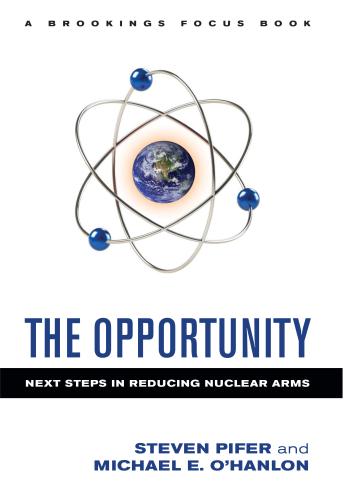
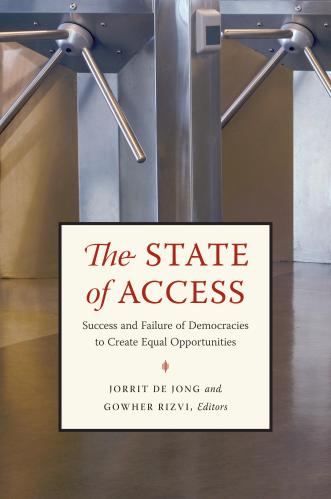
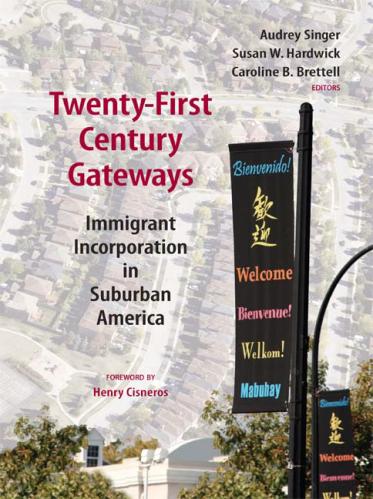
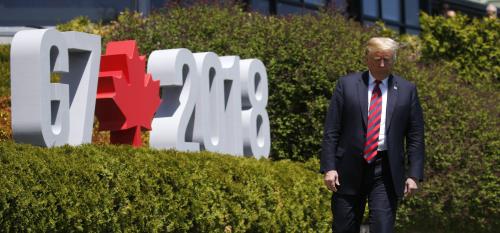
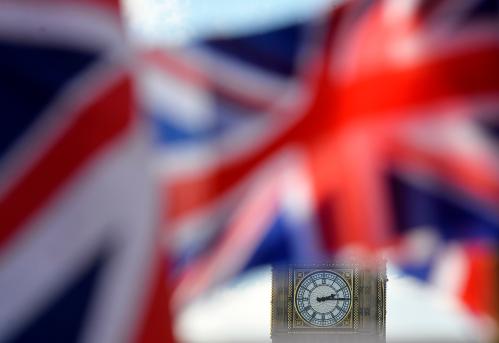
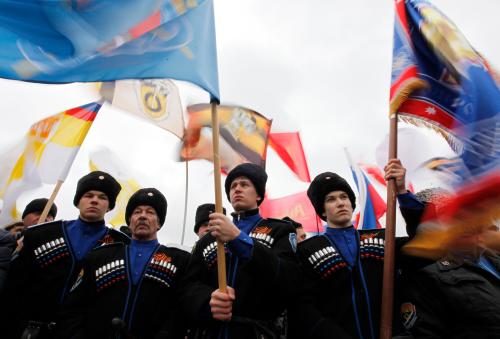
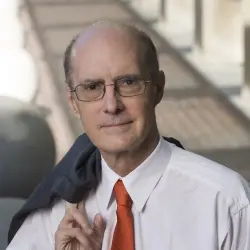



Commentary
The man who lost an empire
December 7, 2017